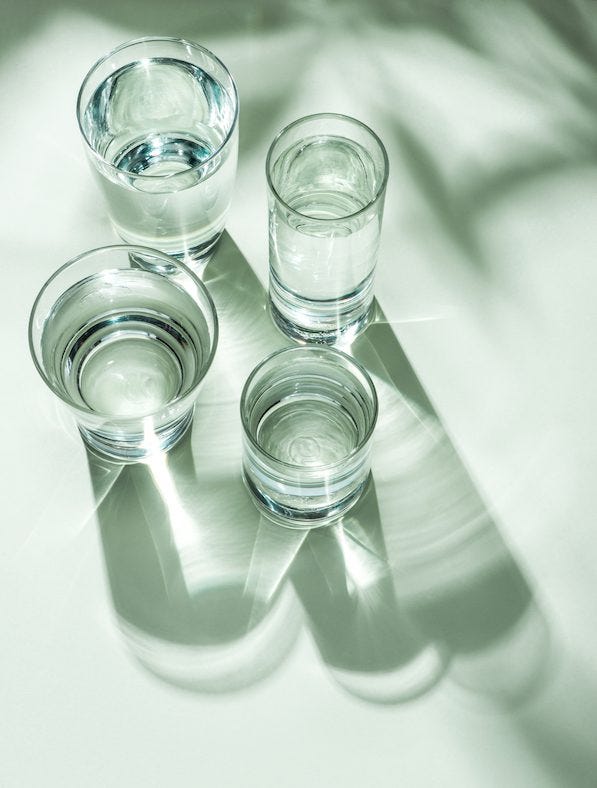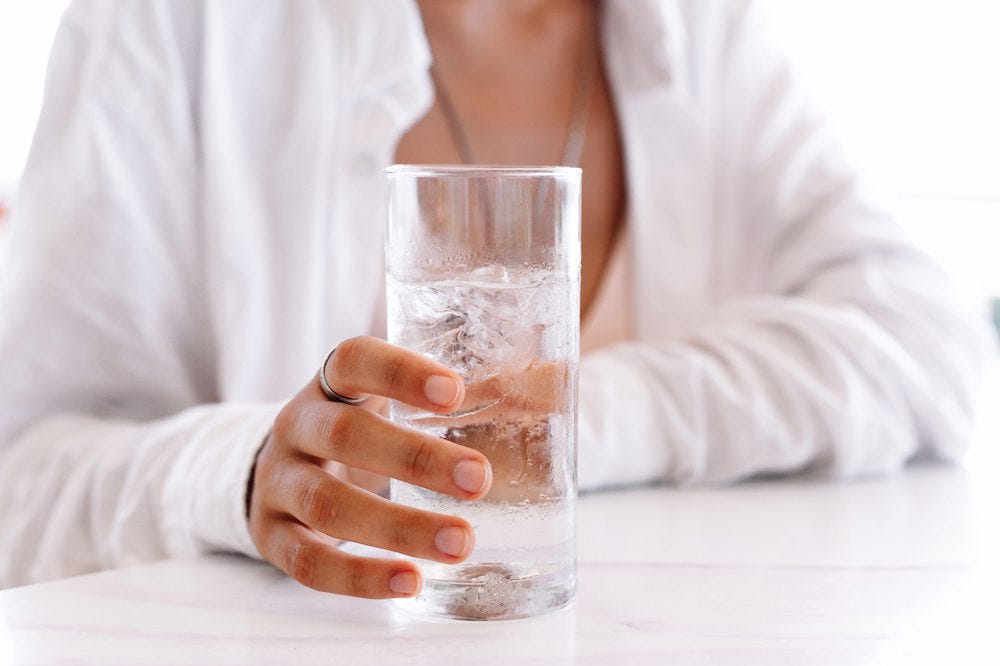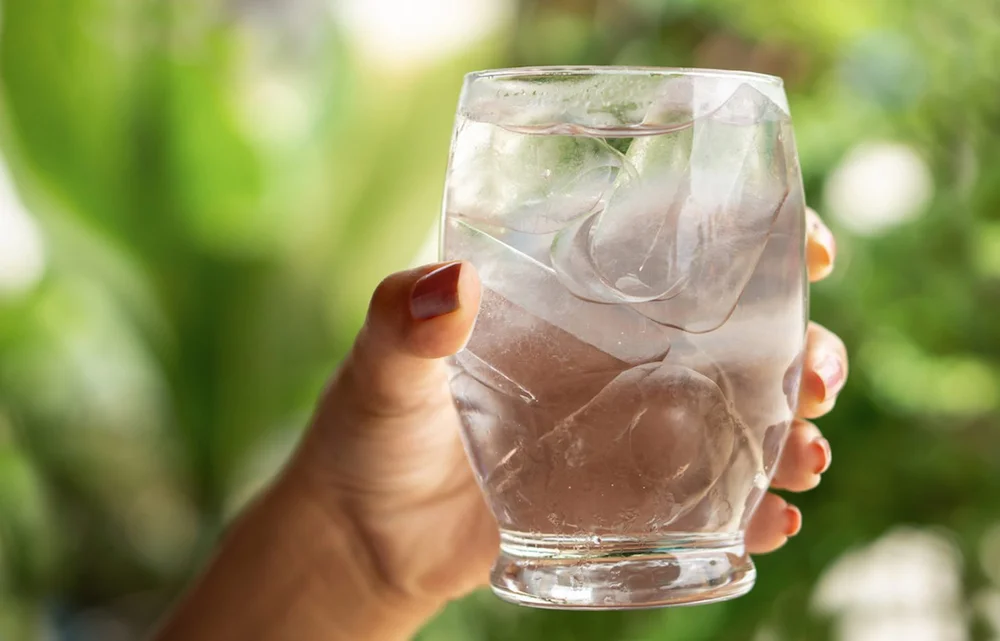Here’s How to Look for Good Quality Drinking Water
Warmer weather is here.
As you head outdoors for recreation or physical activity this summer, one thing you should have plenty of is water.
Benefits of Drinking Water
We all know that drinking water regularly is good for the body. But many don’t realize just how important being properly hydrated is for their health.
About 50-60 percent of the adult human body weight is water, including all our cells, tissues, and organs. As such, it’s important not to underestimate water since every system in the human body depends on it to function.
Here are just a few benefits of drinking water:
- Universal medium of life on this planet: fundamental for our cells’ life processes
- Essential medium for blood circulation (oxygen, nutrient delivery), the lymphatic system (which transports wastes), and for the urine (which excretes unwanted substances)
- Used by the body to help regulate body temperature
- Fundamental medium for saliva, the digestive enzymes to accomplish digestion, and joint substances and joint lubrication
It’s helpful to think of water as a nutrient your body needs. As with other nutrient deficiencies, failing to drink enough water creates problems for your brain and body.
Dangers of Dehydration
Your brain is approximately 80% water. Even mild dehydration can impair performance in tasks that require attention, immediate memory skills, and physical performance. According to one study, thirsty participants who drank water before performing cognitive tasks reacted faster than people who didn’t drink water beforehand.
Some common signs of dehydration are: extreme thirst, dark urination, less frequent urination, confusion, dizziness, and fatigue. Dehydration is also associated with urinary/kidney issues, brain atrophy, poor concentration, memory difficulties, diminished school/work performance, and increased sensitivity to pain.
Bring More Than You Need
When engaging in outdoor activities, running out of water can lead to dehydration, heat exhaustion, heatstroke, and even death. Always bring more water than you think you need. Having extra water at the end of your activity is far better than running out.
It’s recommended that you drink plenty of water each day to keep your brain and body adequately hydrated. The current recommendations from Food and Nutrition Board of the Institute of Medicine of the U.S. National Academies are that women consume at least 91 ounces of water and men at least 125 ounces daily, from their foods, beverages and drinking water.
When physically exerting yourself outdoors, you should drink an additional liter of water for every 4 to 5 miles you run, hike, or bike. You may need to increase this quantity in arid regions or on hotter days.
Types of Water
Not all forms of water are beneficial to human life. Some are healthy and some aren’t.
Here are some common types of drinking water:

Purified water – Some people use a water purification system to help filter out dangerous particles from their tap water, but no filter can capture every harmful element. Also, many people don’t follow the recommended schedule for changing their filter, which may allow pollutants and toxins to enter their water.
Mineral water – As the name implies, this type of water comes from a mineral spring. It may be loaded with healthy minerals, such as calcium and magnesium, but also some that aren’t healthy and perhaps even harmful. Its benefits may not be necessary for individuals who get many of these minerals from their diet or supplement regimen.
Distilled water – This water is the collected steam from boiling water, which is condensed back into liquid. This water has no vitamins and minerals, so it doesn’t have any health benefits.
Spring/Glacier water – These types of bottled waters are excellent, but only if they come from clean springs and not from fake “natural sources.” Some spring water may be unfiltered and untested, which could invite health risks.
Reversed Osmosis water – Created by pushing water through a semi-permeable membrane to remove harmful minerals and contaminants, reverse osmosis water is filtered of practically all impurities. Unfortunately, it’s also stripped of all its minerals. Some people use mineral drops to add minerals like calcium and magnesium back into their water.
Alkaline water – This water has a higher pH level than tap or distilled water, which has a roughly neutral pH that’s close to the body’s healthy pH (pH is a measure of the concentration of free hydrogen ions in the water). Many alkali waters claim benefits that aren’t supported by adequate clinical or other scientific research. Severe alkalosis may cause nausea and vomiting.
Flavored water – Infused with natural or artificial sweeteners and flavorings, flavored waters aren’t an ideal choice for healthy hydration. Though they may taste better than plain water, flavored waters may contain potentially toxic additives or include unnecessary calories that can lead to weight gain.
Now that we’ve looked at some of the best and worst types of drinking water, let’s see how drinking healthy water can help your brain and body.
6 of the Top Reasons to Drink Good, Quality Water

- Healthy Muscles & Recovery
Being adequately hydrated is important when exercising. Drinking water helps prevent muscle cramping and lubricates the joints in your body.
Drinking water can make your muscles stronger. As the basal blood medium, water carries oxygen and nutrients to the cells of your body, including those of your muscles. Being well hydrated enables your muscles to work longer and harder before they feel tired, which can help you more efficiently build muscle.
- Weight Loss
Drinking water can help you lose weight by acting as an effective appetite suppressant, so you’ll feel fuller and eat less. In this way, drinking more water may help to manage your cravings. Remaining well-hydrated also prevents fluid retention; your body won’t try to retain water if it’s getting enough.
- Detoxify
Your body fluids transport waste products out of your cells, while your kidneys and liver flush those waste products and other toxins out of your body. These processes can only work properly and efficiently if you’re well hydrated. When you aren’t drinking enough water, you’re at an increased risk of developing kidney stones and experiencing urinary tract issues.
- Maintain Regularity in Digestion
Sufficient hydration keeps things moving along in your gastrointestinal (GI) tract and helps prevent constipation. As the medium for the digestive enzymes to work, water is essential for freeing the nutrients from our foods and allowing them to be absorbed.
Water in the GI tract also helps dissolve waste particles and transport them all the way to final clearance. If you’re dehydrated, your body pulls water from your stools, which leaves your GI tract less lubricated and makes it more difficult to pass waste.
- Brain Function
Since your brain is mostly water, drinking water can help you in several ways, including:
- Maintaining memory, concentration, and cognition
- Helping to keep your mood and emotions balanced
- Supporting blood flow and oxygen to your brain
- Helping to prevent and even relieve headaches
- Youthful Skin
Your skin contains water and functions as a protective barrier to prevent excess fluid loss. Drinking plenty of water keeps your skin cells well hydrated, which helps your skin stay healthy.
Consuming sufficient water helps your skin retain its natural moisture and maintain its elasticity. Water moving through the skin tissue also helps flush out impurities, which helps to maintain skin quality.
Stay Hydrated
As we’ve seen, proper hydration is critical to health and wellness.
Water is vital for every part of your body. Your cells, tissues, and organs need adequate hydration to stay alive and function at their best. Make sure you’re drinking plenty of healthy water, especially during the summer months or if you live in an arid region.
Whatever outdoor activity you choose, grab your water bottle and have some fun this summer.
At BrainMD, we’re dedicated to providing the highest purity nutrients to improve your physical health and overall well-being. For more information about our full list of brain healthy supplements, please visit us at BrainMD.


I loved this article because my friends and family think I’m crazy about good quality water. For the last 13 years I refuse to drink tap water. I just wish you would have made some recommendations on what you feel is the best types of water to drink. Currently I’m drinking reverse osmosis-water in BPA free bottles.
“Distilled water ….This water has no vitamins and minerals, so it doesn’t have any health benefits.” So pure water doesn’t on its own have any benefit? Of course it does.
How can I tell if the water is healthy? Are there some brands that you trust?
Thanks for the information. What type of water do you recommend? Thanks!
How do I know what spring/glacier water sources are clean??
So I still don’t know which is healthiest. It sounds like they are all bad.
SO, what WOULD you recommend as good, quality water?
Lemon + water is my favorite way to make alkaline water, and it’s healthy and cheaper than other methods. But now I’ve been using Kangen water for my daily drinking water and it doesn’t disappoint me.